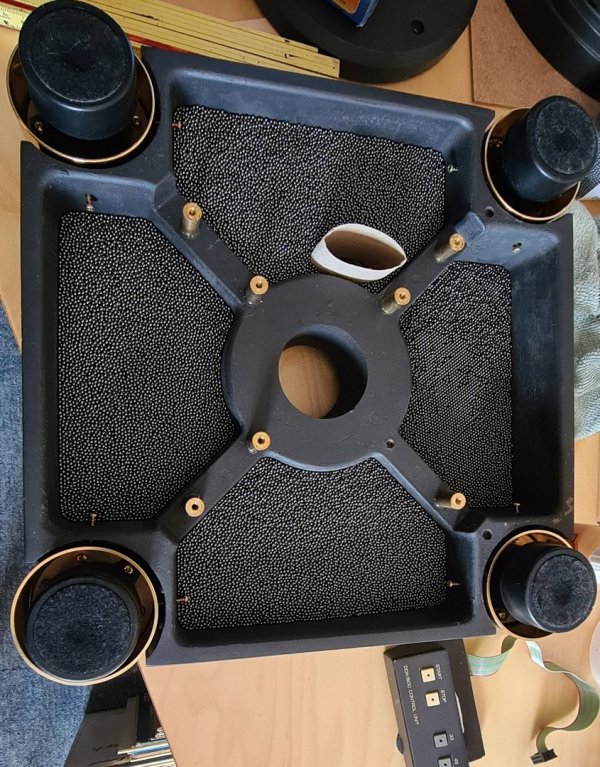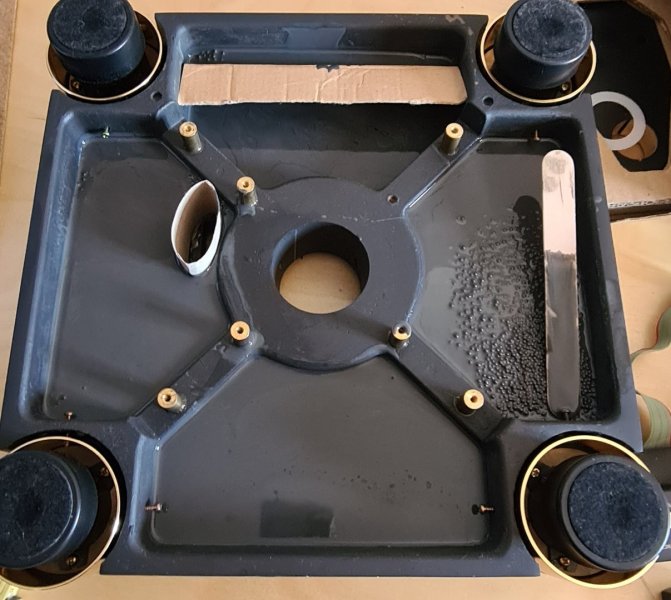The Technics is the most speed stable turntable ever made but has a major failing in its plinth design. Once that is overcome (which is not easy) its transformational. Its other problem is the platter pad, which is junk. If you don't address these issues, you don't hear what the design is really about.Ralph, yes there is a following for those vintage turntables, but my experiments are not about fiddling to get this right. The speed has always been accurate and consistent. The turntable always sounded right. This is fine-tuning to make the listening experience more natural. It is also about learning and sharing results with others who have high mass thread drive turntables. The sound was excellent before, now it’s just a bit better. Many of us work on our systems to improve them. This is not unlike choosing to fine tune speaker placement. How far does want to take it? It is about optimizing a certain set of conditions for more convincing sound.
I lived with a Technics SP 10 Mk3 in my system for a few days. It had a highly regarded custom plinth and we did some speed measurements. It is indeed very speed accurate and consistent. But there is more to turntable design. Good speed is necessary but not sufficient. My friend who owns that turntable has it now in storage and listens only to his big Micro Seiki SX 8000 II.
In the end, there are many different approaches to turntable design. We makes our choices based on criteria most important to us.
The same is true of the Empire- its plinth is really bad. That is why we designed one for it that was machined of solid aluminum 3/4" thick, so as to overcome the resonance and instability of the original; you see this same thing happening in the Lenco and Garrard worlds.
So I get what you're up to. I was just pointing out that a robust drive really does help.



